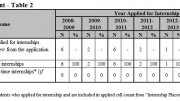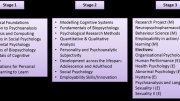 Music is one of the few activities that involves using the whole brain. It is intrinsic to all cultures and has surprising benefits not only for learning language, improving memory and focusing attention, but also for physical coordination and development.
Music is one of the few activities that involves using the whole brain. It is intrinsic to all cultures and has surprising benefits not only for learning language, improving memory and focusing attention, but also for physical coordination and development.
Not all types of music have favourable effects. Music can be distracting if it's too loud or too jarring, or if it competes for our attention with what we're trying to do. But for the most part, exposure to classic music has beneficial effects:
1Music heals
Pain relief
Overall, music does have positive effects on pain management. Music can help reduce both the sensation and distress of both chronic pain and postoperative pain.
 Listening to music can reduce chronic pain from a range of painful conditions, including osteoarthritis, disc problems and rheumatoid arthritis, by up to 21% and depression by up to 25%, according to a paper in the latest UK-based Journal of Advanced Nursing.
Listening to music can reduce chronic pain from a range of painful conditions, including osteoarthritis, disc problems and rheumatoid arthritis, by up to 21% and depression by up to 25%, according to a paper in the latest UK-based Journal of Advanced Nursing.
Music therapy is increasingly used in hospitals to reduce the need for medication during childbirth, to decrease postoperative pain and complement the use of anesthesia during surgery.
There are several theories about how music positively affects perceived pain:
- 1. Music produces revulsive effect
- 2. Music may give the patient a sense of control
- 3. Music causes the body to release endorphins to counteract pain
- 4. Slow music relaxes by slowing breathing and heartbeat
 Reducing blood pressure
Reducing blood pressure
By playing recordings of relaxing music every morning and evening, people with high blood pressure can train themselves to lower their blood pressure - and keep it low. According to research reported at the American Society of Hypertension meeting in New Orleans, listening to just 30 minutes of classical, Celtic or raga music every day may significantly reduce high blood pressure.
Medicine for the heart
Music is good for your heart. Research shows that it is musical tempo, rather than style. Italian and British researchers recruited young men and women, half of whom were trained musicians. The participants slipped on head phones and listened to six styles of music, including rap and classical pieces, with random two-minute pauses. As the participants kicked back and listened, the researchers monitored their breathing, heart rates and blood pressure. The participants had faster heart and breathing rates when they listened to lively music. When the musical slowed, so did their heart and breathing rates. Some results were surprising. During the musical pauses, heart and breathing rates normalized or reached more optimal levels. Whether or not a person liked the style of music did not matter. The tempo, or pace, of the music had the greatest effect on relaxation.
The participants slipped on head phones and listened to six styles of music, including rap and classical pieces, with random two-minute pauses. As the participants kicked back and listened, the researchers monitored their breathing, heart rates and blood pressure. The participants had faster heart and breathing rates when they listened to lively music. When the musical slowed, so did their heart and breathing rates. Some results were surprising. During the musical pauses, heart and breathing rates normalized or reached more optimal levels. Whether or not a person liked the style of music did not matter. The tempo, or pace, of the music had the greatest effect on relaxation.
Source: www.emedexpert.com
You might also like:





















 A sound synthesizer (often abbreviated as "synthesizer" or "synth") is an electronic instrument capable of producing a wide range of sounds. Synthesizers may either imitate other instruments ("imitative synthesis") or generate new timbres. They can be played...
A sound synthesizer (often abbreviated as "synthesizer" or "synth") is an electronic instrument capable of producing a wide range of sounds. Synthesizers may either imitate other instruments ("imitative synthesis") or generate new timbres. They can be played...
 The loudness war or loudness race is a pejorative term for the apparent competition to digitally master and release recordings with increasing loudness.
The loudness war or loudness race is a pejorative term for the apparent competition to digitally master and release recordings with increasing loudness.